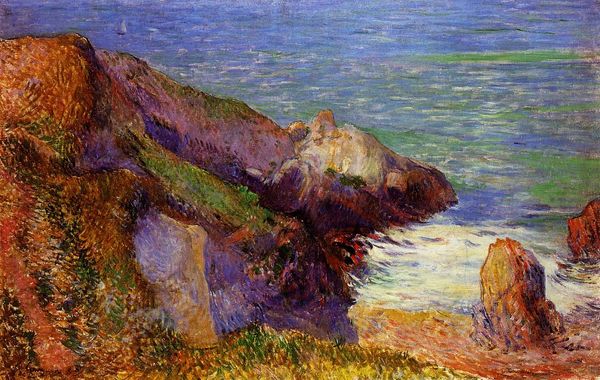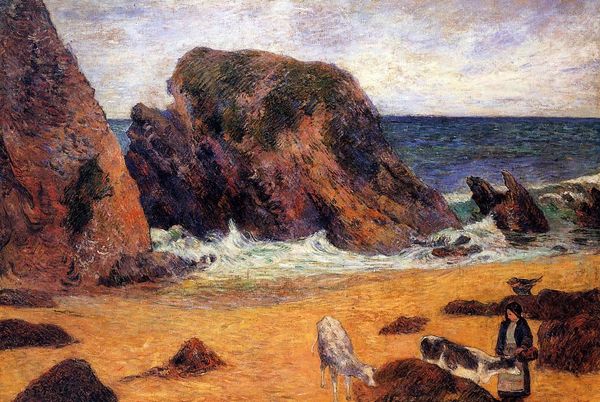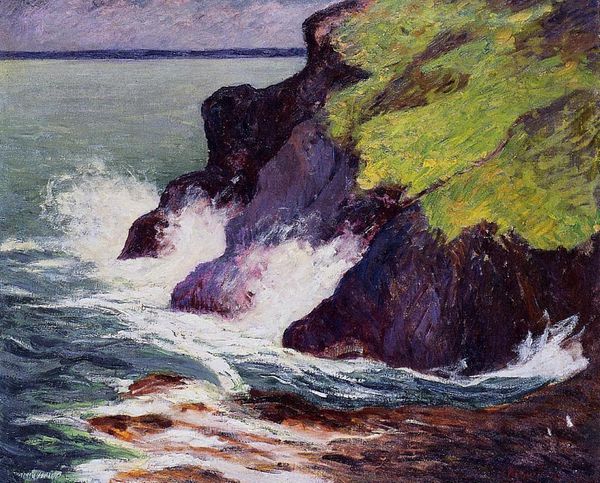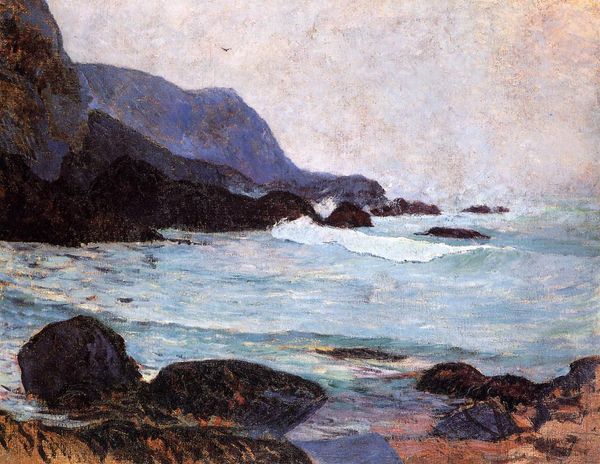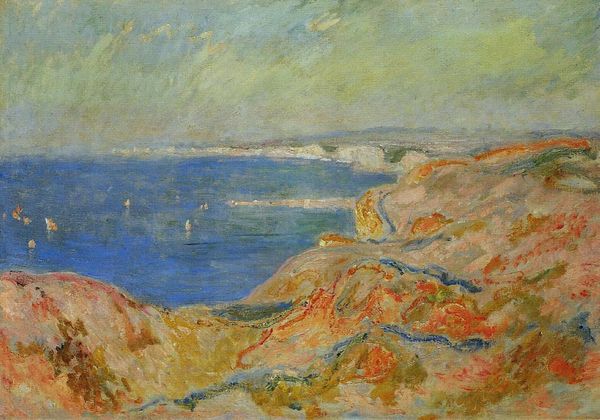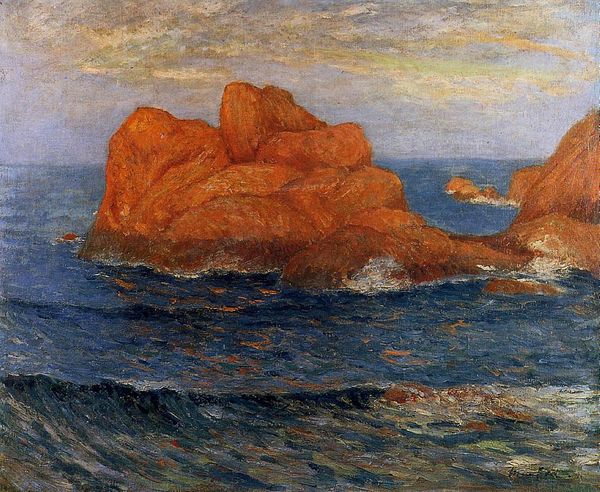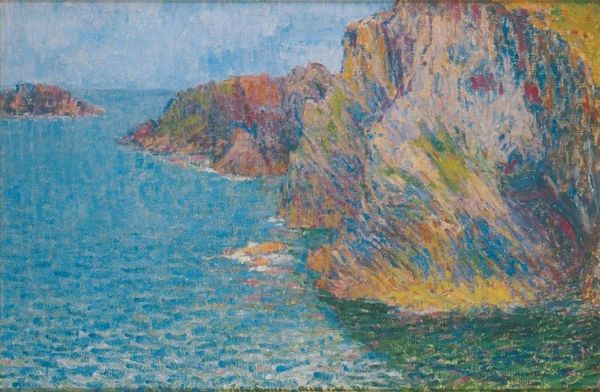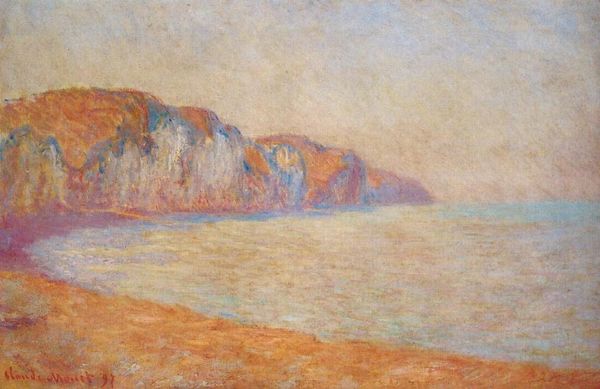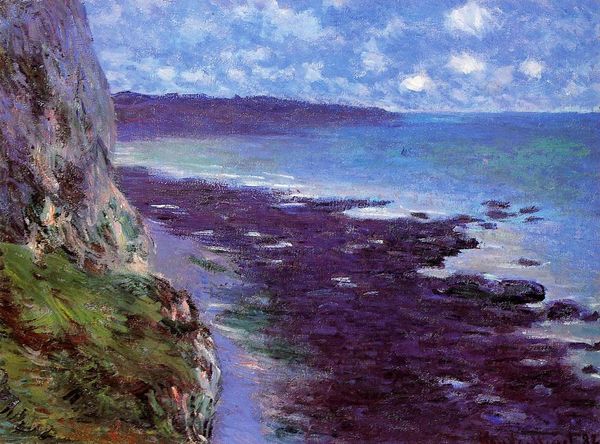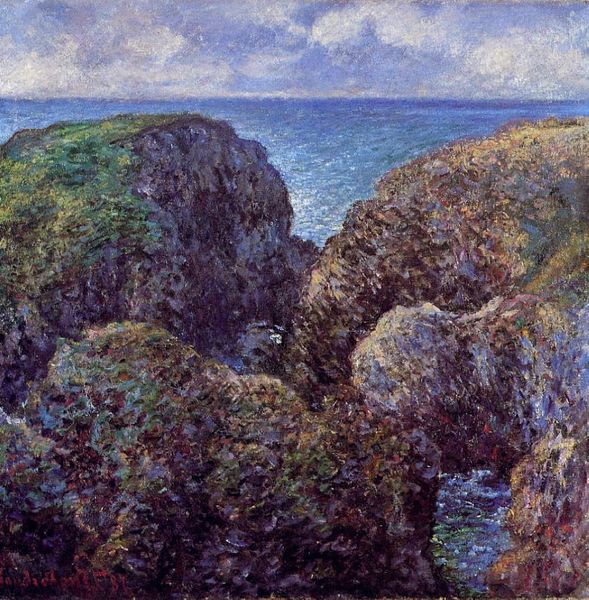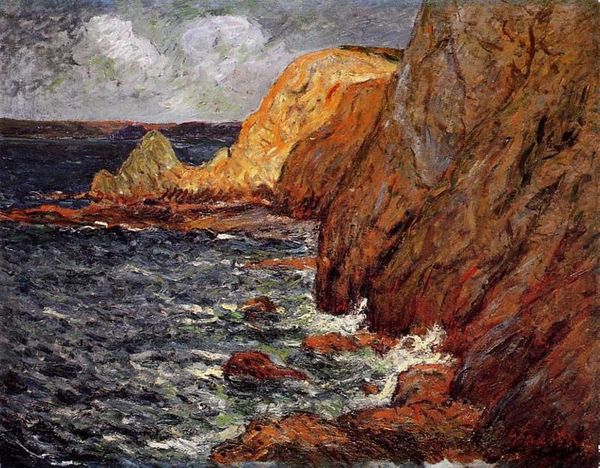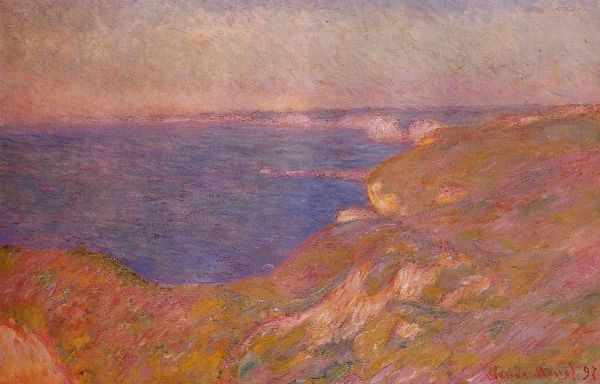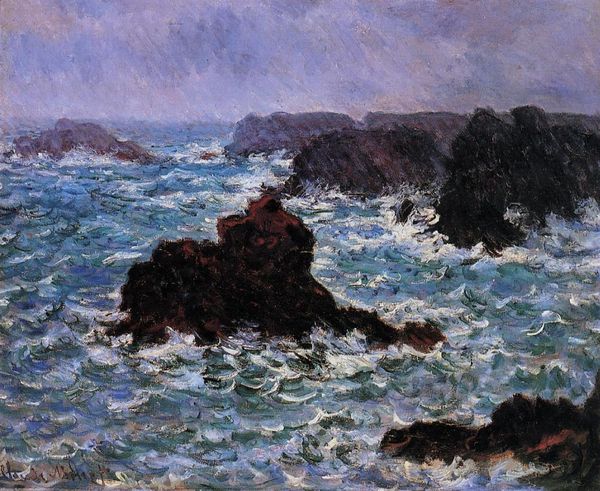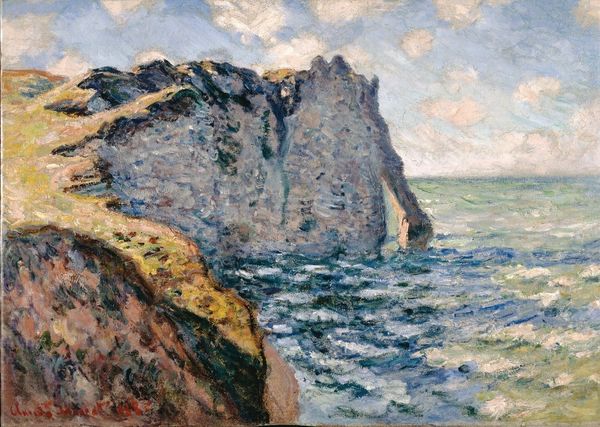
#
tree
#
abstract expressionism
#
abstract painting
#
impressionist landscape
#
possibly oil pastel
#
oil painting
#
ocean
#
rock
#
fluid art
#
acrylic on canvas
#
mountain
#
seascape
#
watercolor
#
expressionist
#
sea
Copyright: Public domain
Curator: Here we have Paul Gauguin's "Rocks on the Coast," painted in 1889. Gauguin was deeply involved in the French art scene, and his work really challenged established academic traditions. Editor: It’s moody, almost brooding. Look at the thickness of the paint – he really attacks the canvas. You can almost feel the grit of the rocks. I bet this canvas has an interesting texture. Curator: He was striving for something beyond representation. He felt that the Western art world's emphasis on realism was constraining the spirit of art. Editor: The color palette, earthy browns mixing with violet sea...it hints at the physicality of the coastline. It also feels deliberately raw – a rejection, maybe, of overly refined techniques. Curator: He did want to get away from the urban scene, seeing it as corrupting artistic creation. It's why he eventually ended up in Tahiti. He wanted something primordial, unspoiled. Editor: There's a sense of the artist's own labor in this – you can practically see Gauguin working with the materials, battling with them to express his inner vision. Do we know what brand or pigment quality of paint he usually preferred? Curator: Sources indicate that in that time frame, artists did not usually focus so much on a specific brand as on the final result, in this case a depiction that was truer to lived experience. Editor: It reminds you that the very means of producing art have a history too. Pigments mined and traded, brushes made by hand...all part of the final artwork’s narrative, the way this affects the market price in art today also. Curator: Absolutely. This painting really highlights his attempts to reconnect art with something more raw and spiritual. A sentiment so strongly reflected in his social life choices, breaking free from cultural norms that dominated at the time. Editor: For me, "Rocks on the Coast" becomes about process, labor, and an almost tactile relationship with the natural world – more than just the end aesthetic product. The making is as vital as the viewing. Curator: So well said, and Gauguin would've undoubtedly agreed. Editor: Indeed, he provides much to consider, socially and materially!
Comments
No comments
Be the first to comment and join the conversation on the ultimate creative platform.
